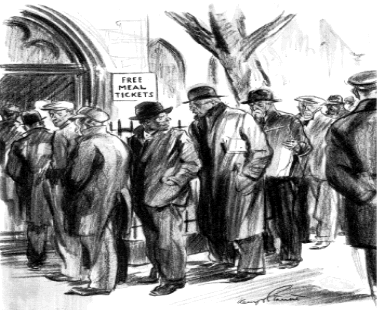This type of life style leaves people completely dependent on the food retailers. Even though they have the best of intentions, if there are any disruptions in the distribution system, we could go hungry in a very short time. The food in your pantry depends on many of the following working perfectly:
- banks
- your job, health, and paycheck
- grocery store
- delivery trucks and warehouses
- manufactureing plants
- farmers and their equipment
- the crops
- the weather
- ...
If any of the steps in the distribution system breaks down, your family could go hungry in only a few days. By storing food, you can provide food to your family for an extended period. Food Storage can be considered a form of insurance, and should be valued as highly as any of your other policies.
Most doctors and nutritionist state that the average person can live about 4 to 6 weeks without food. Going without food for even the shortest time can lead to physical weaknees, confusion, poor judgement. Without food or nurishment for a week and you could suffer from a weakened immune system or the ability to maintain body temperature which can lead to hypothermia, heat exhaustion, or even heat stroke. All of these conditions can leave you unable to perform survival-related tasks.
How Much Food Do You Need?
The answer to that question depends on several factors.
- What event are you trying to prepare for?
- How many people are you trying to provide for?
- What types of food to store?
- How much will you invest in your storage plan?
Are you preparing for the 72 hours we hear so much about? One month, three months, a year?. All are considerations that will need to be addressed in order to provide your answer. Keep in mind your family's eating habits, likes and dislikes. A quick examination of your cupboards and cabinets can tell you how much you need to add to ensure you have enough food for a week.

